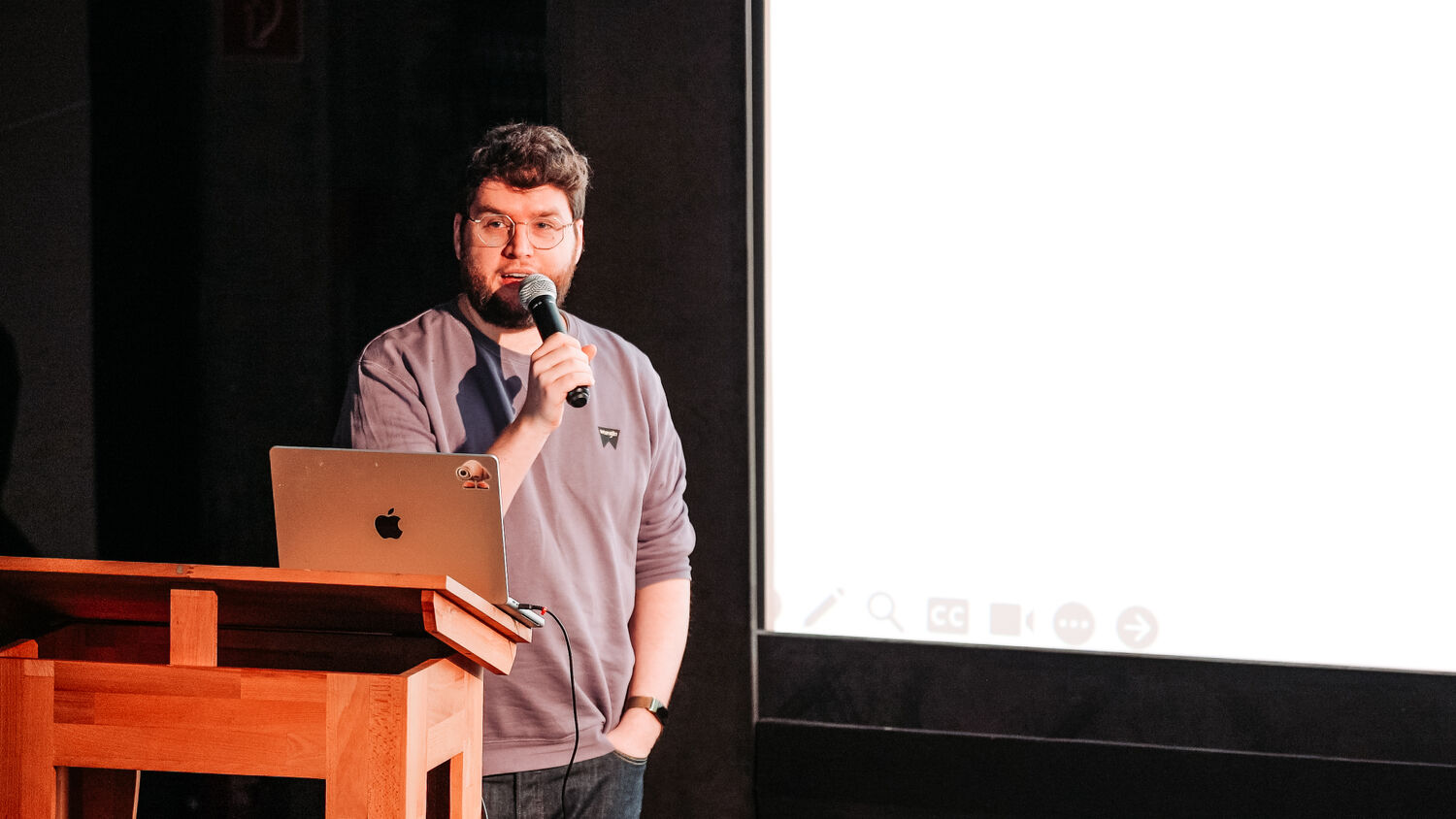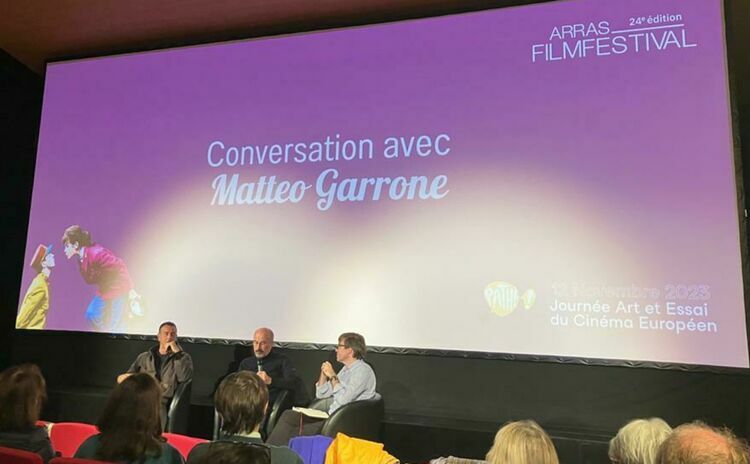Hal, Do you read me? AI and Arthouse Cinema
It feels like ‘AI’ is everywhere. No longer a phantom-like villain in a science fiction film, you can use it to generate Freddy Mercury’s rendition of ‘Frozen’ or an animated version of your dog. In recent months, there have been calls to halt the development of AI until regulations catch up and endless opinion articles speculating on how it will change our world.
Where are we with AI ?
At least in the film industry, it’s already being used:
- AI generated background actors were used in the Disney film PROM PACT
- More and more subtitles are translated automatically
- It was one of the biggest issues in the 2023 SAG AFTRA strikes
Hollywood has already said yes to AI in film, but where do Arthouse movies and cinemas fit in?

Marvin Wiechert, a CICAE alum and digital marketing specialist at the Yorck Kino Group, stopped by the February 2024 conference to give a broad reaching talk, and some practical tips, on how the industry should face this ‘brave new world.’
The worst AI ever
First and foremost, Wiechert stressed that we must remember that the AI we see today is the ‘worst and weakest’ it will be in our lifetimes. AI is developing at an exponential rate – advancements that were predicted to take years have happened in the last few months. It is vital to understand Arthouse cinema’s place within the sector as it is changing, and not catch up to it after the fact.
But not for long
Wiechert predicts that we will see films entirely made by AI in the near future. This will dramatically change film production. Work that would normally take skilled professionals months to do, including writing and researching, dubbing, and animating, can now be done in seconds. The development of a film will also be completely altered.
The individualisation of films
Rather than needing to appeal to a sizable audience to justify its budget, films might be made for only one person. Using each of our personal data sets – like those that Spotify uses to recommend new music – they may be generated in seconds using the elements of our most liked or watched films. This new cinema experience would be a solitary one, and even more concerning, one that traps the audience within their preferences and point of view.
A meaningless technology ?
This is in part because of the way that AI learns and processes data. Wiechert emphasized that AI is trained to generate content, but (at least for now) cannot recognize its meaning.
A machine can learn
The process of machine learning teaches a program to create content that follows the form, style and typology of a certain desired outcome but not to understand why or what the meaning of the content is. For example, when asked to write a scientific paper, ChatGPT will include citations for nonexistent academic articles. It can recognise the pattern of the requested outcome – an essay that includes footnotes – but not the purpose of the citation or its meaning.
But not understand
While this certainly has concerning wide-reaching consequences, in the film world it may also lead to a lack of diversity. AI, at least in its current form, will develop films that follow the conventions of the films it has been trained on. It cannot recognise the hierarchies between film as a medium and film as a set of commonly used tropes, cliches and plot points that may appear regularly in its data set.
Arthouse cinema as a bastion
As Wiechert pointed out, Arthouse cinemas may become one of the few remaining spaces that show and champion films made by humans. People may become bored with seeing content created with only them in mind, and may seek out alternative spaces and films. On the other hand, younger audiences may only grow up with AI films and find the human-made irrelevant.
The arthouse paradox
This difficulty of attracting two demographics for different reasons is similar to what Wiechert calls the ‘Arthouse paradox’ in social media marketing. Social media platforms use algorithms that push certain types of content and it is necessary to engage with them to gain traction. However, Arthouse cinemas also need to be wary of straying too far into the mainstream and risking what makes them distinctive.
How to use AI ?
While it remains unclear exactly what an AI driven world will look like, there are some ways that it can be useful in managing a cinema today.
- Customer service: AI can summarize emails, reply automatically to frequently asked questions, and even issue refunds or vouchers. There are numerous software startups that are already offering these services for businesses.
- Graphic design: Websites like Canva can generate flyers and posters in seconds based on your examples and guidelines, this can save hours of staff time or freelancer fees.
- Staff planning and invoicing
- Audience data: AI can process huge quantities of data to give you insight into your audience and make real predictions for turnout in a given week, allowing you to plan screenings and schedule staff accordingly.
- Writing: Custom ChatGPT allows you to train the AI on your own text to create an AI that follows your exact style guide. You may need to read it over to make sure everything is correct (no imaginary footnotes), but it can save you huge amounts of time, especially when you need text in multiple languages.
29.04.2024

Thea Jessamyn Voyles
Thea Jessamyn Voyles is an art writer and curator living in New York. She holds a BA in Art History from the Courtauld Institute of Art, where she wrote about mid-century romantic comedies and the implications of exhibition space. Thea also works for a contemporary art gallery, organises exhibitions of emerging artists, and hosts a fashion podcast. more from the author


